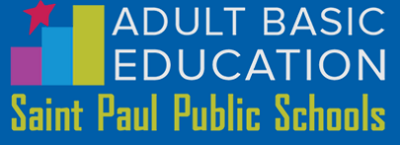- MN ABE Connect
- Archive
- 21st Century Demands on Adult Education
21st Century Demands on Adult Education
Liz Andress, InstructorAt the national COABE (Commission on Adult Basic Education) Conference in April, I attended a session entitled 21st-Century Demands on Adult Education: Gaining Perspective on the Role of Adult Educators, which engaged a critical discussion about conflicting ideologies in our field. Are we, with current WIOA guidelines, required solely to prepare students to be good workers for the U.S. workforce, or do we also have a responsibility to be agents for social change, or at least to equip learners to be active, informed citizens?
We need to be clear that the U.S. economic context our adult learners enter is one of growing income disparity between rich and poor. We often tout – and want to believe – that education is the ticket to a secure, middle-class life. Let us not tell a false story about social mobility. The economic realities beyond our immediate control as educators pose serious challenges to adult basic education learners securing livable-wage jobs and more. Many of our learners will be in low-level, low-wage jobs. How can they make this sustainable?
My own thoughts as I listened to the panelists were these:
- We need not pose the question as either/or – training for the workplace or preparing empowered citizens. We can and should do both.
- Examples: In an ELL intermediate work unit, I can meet CCRS standards by having students read a paid/unpaid leave policy from an employee handbook; or I can have students read pro and con articles about the worker movement to gain paid sick leave for low-wage workers. I can promote the American notion of an individualistic career pathway; or I can expand this to include an understanding of labor unions.
- In Minnesota we have significant state funding for ABE. The use of those funds need not be constrained by the WIOA requirements.
- We can authentically engage our learners in this discussion. What are your experiences in the workplace? What choices exist for you? What choices do you want? How can you impact policy in the workplace and in the broader society?
I, as many others, entered ABE with commitments to empowerment and social change. Let’s not abandon those ideals, even as the field nationally moves in another direction.

Newsletter Signup
Get MN ABE Connect—the official source for ABE events, activities, and resources!
Sign UpArticle Categories
- ABE Foundations/Staff Onboarding
- ACES/Transitions
- Adult Career Pathways
- Assessment
- CCR Standards
- Citizenship
- COVID-19
- Cultural Competency
- Digital Literacy/Northstar
- Disabilities
- Distance Learning/Education
- ELA
- Equity/Inclusion
- ESL
- HSE/Adult Diploma
- Listening
- Math/Numeracy
- Mental Health
- Minnesota ABE
- One-Room Schoolhouse/Multilevel
- Professional Development
- Program Management
- Reading
- Remote Instruction
- Science
- Social Studies
- Speaking/Conversation
- Support Services
- Teaching Strategies
- Technology
- Uncategorized
- Volunteers/Tutors
- Writing